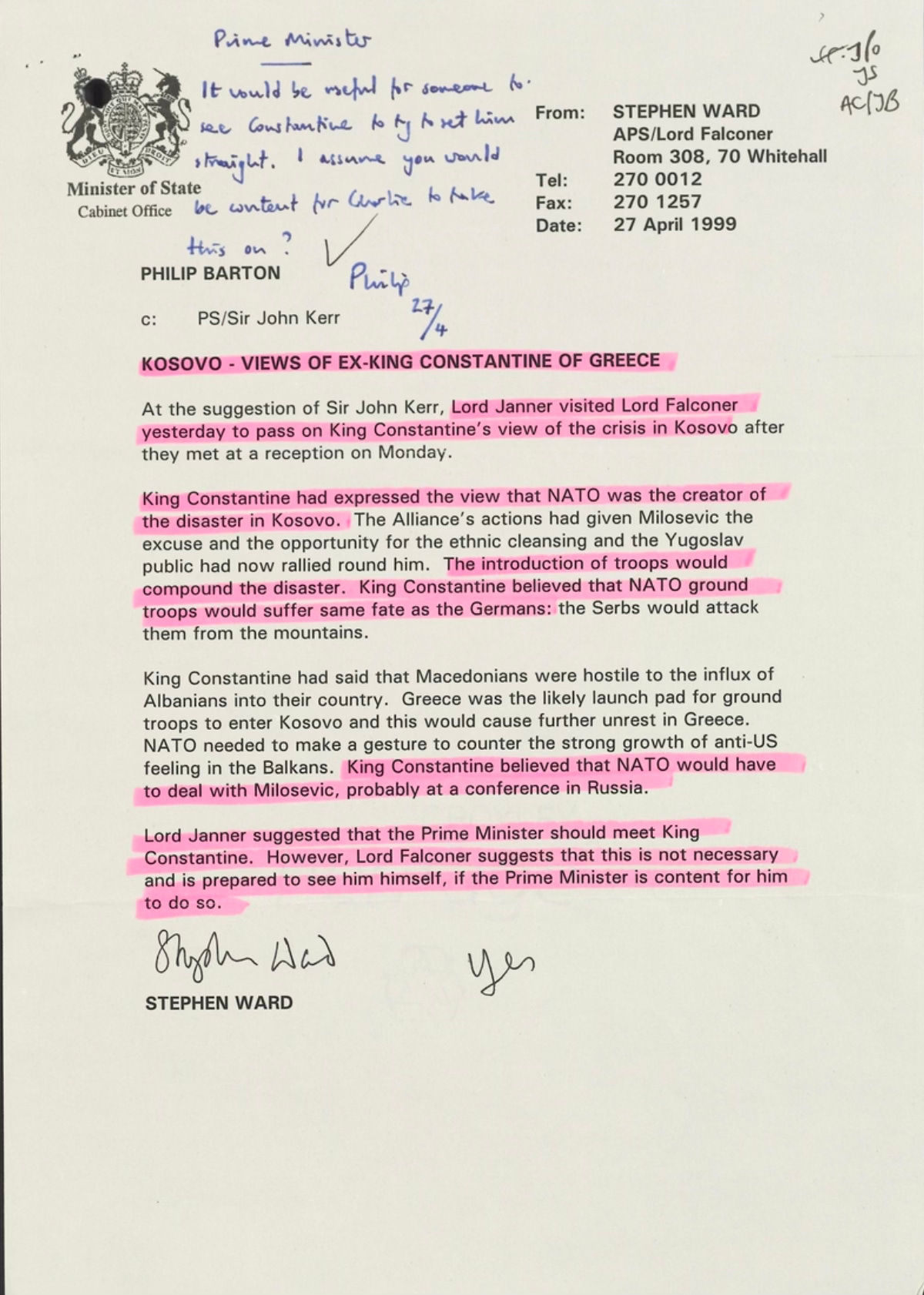Welcome along to the first part of a two part special marking the 26th anniversary of the North Atlantic Treaty Organisation’s (NATO) air campaign in Kosovo/Serbia, beginning on March 24th 1999.
We open with a gripping series of stories from Greek foreign correspondent Christos Nikoladis of SKAI TV.
Typically, for a then budding war journalist, he tells the story of how he used his nous to outwit his boss and get to Prishtina for the beginning of the bombardment. We also hear how he attempted to smuggle photographs of a killing inside the newspaper offices of newspaper Koha Ditore out of Kosovo; how he got to Belgrade for the bombing of the Chinese Embassy, as well as the Nis bombing, visiting Decani Monastery and journalism in general.
Stay tuned to the end to hear Christos tell his story about overhearing the outcome of the meeting between former Greek PM Konstantinos Misotakis and Slobodan Milosevic… while in the gents restroom.
The second part of the special will be delivered on Monday.
Deep Dive: Did the NATO air campaign cause the humanitarian catastrophe in Kosovo?
It’s still a common perception in Greek/Serbian/Russian circles that the refugee crisis was singularly created or even staged by NATO, rather than as a consequence of intensified actions by Serbian forces, especially the paramilitaries.
In my humble opinion, the air campaign did not cause the humanitarian crisis, but it did give a cover for intensified attacks on civilians.
Given that truth rarely surfaces until those in denial are long gone let’s examine some of the supporting evidence from General Hugh Shelton, Robin Cook, Blair and Clinton.
But first, Greek and Russian leaders reactions to NATO’s military actions:
And a memo to Blair regarding the Ex-King of Greece Constantine’s position…
Bill Clinton had anticipated the possibility of NATO being blamed during a telephone conversation with Tony Blair on 21 March 1999.
“If we take the initiative (bombing) and he moves against the people it will look like we caused it,” says Clinton.
As did General Hugh Shelton, Chairman of the US Joint Chiefs of Staff, warning on 15 March—ten days before air strikes were launched—that:
"There was a danger...that far from helping to contain the savagery of the Serbs in Kosovo—a moral imperative cited by the President—air strikes might provoke Serb soldiers into greater acts of butchery."
Later, on camera Milosevic would take the opportunity to hold NATO responsible for the movements declaring: “Everybody is running away because of bombing, Serbs, Turks, Gipsies, Moslems, deer are running, birds are running…bees are running.”
During the early part of the campaign NATO did not tacitly target non-military targets in Kosovo. The refugee crisis had started many months before March 24th and although it intensified during the bombing Serbian forces were also moving with greater zeal against the Albanian civilian population. On May 4th Blair would relate something of what the refugees had been experiencing to Bill Clinton:
“I think it's necessary to have constantly – and I am trying to get it sorted out this end – people who go up and talk to those refugees - everyone has a horror story to tell. The most horrible things have been going on in there. ”
The results of a UK Foreign Affairs Select Committee enquiry into Kosovo produced the following results to the question at hand: Did the military campaign provoke a humanitarian catastrophe?
In the report Foreign Secretary Robin Cook is quoted as saying: "Certainly there has been a humanitarian crisis within Kosovo and the surrounding areas...but if you are suggesting that this is as a result of NATO bombing I would vigorously rebut it...we know the spring offensive was planned before the NATO bombing began. Indeed, one of the reasons why we were motivated to suspend the peace talks is we could see that, whilst the Serbs talked peace in Paris, they were massing their tanks and heavy artillery in and around Kosovo..."
Kosovo: War In Their Own Words
Kosovo: War in Their Own Words is a revealing collection of chronologically arranged communications and conversations between senior global leaders, diplomats and military actors during the Kosovo war – arranged to unfold, as if in a play. Of interest to historians, diplomats, politicians, academics, journalists, soldiers and anyone else seeking deep insight into the details of the war.















Share this post